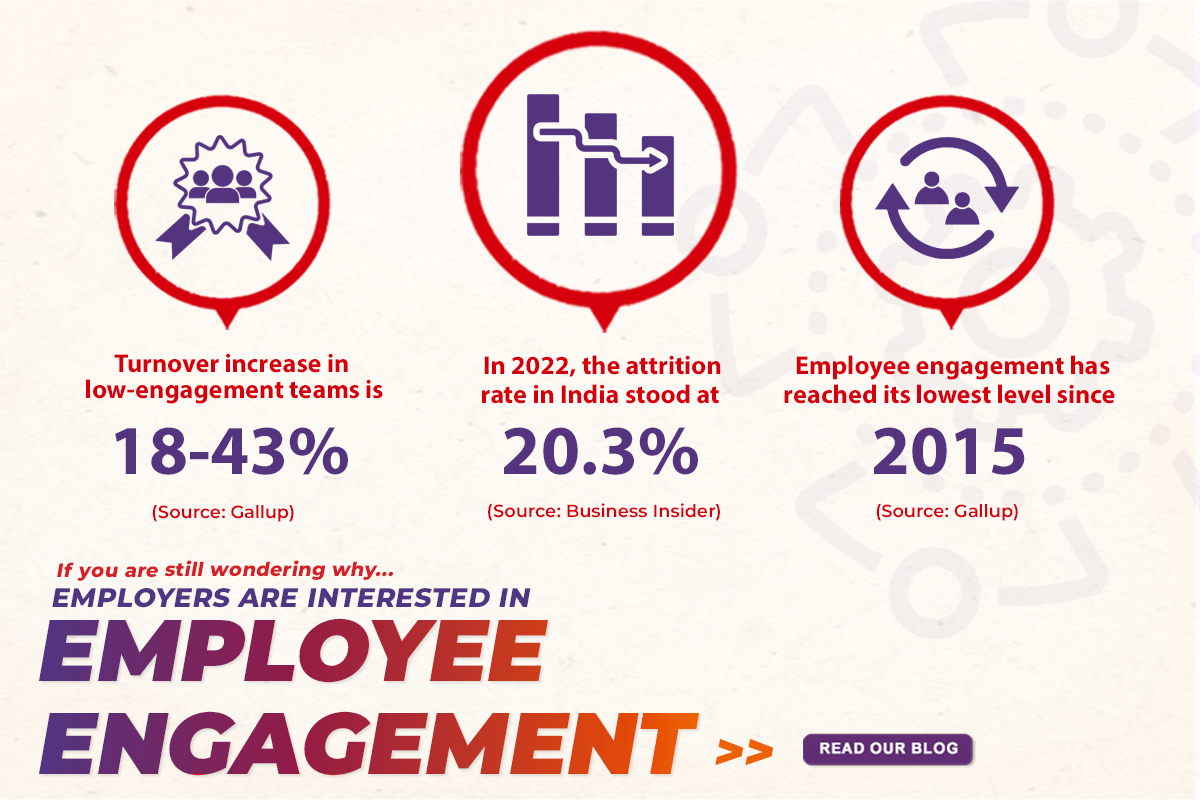

Why are employers interested in employee engagement?
Employee engagement has emerged as a critical focus for organizations in recent years. It goes beyond the realm of traditional performance metrics and delves into the emotional and psychological connection between employees and their workplace. Let’s explore why employers are increasingly interested in employee engagement, highlighting its importance and the wide-ranging benefits it offers.
Employee Retention: The Cornerstone of Success
One of the primary reasons employers emphasize employee engagement is its direct impact on employee retention. In a competitive job market, retaining skilled and experienced employees is essential for a company’s growth and stability. Engaged employees are more likely to feel a sense of commitment to the organization, reducing turnover rates and minimizing the costly process of hiring and training new personnel. A workplace that prioritizes engagement signals to employees that their contributions are valued, thereby fostering a strong desire to stay with the company.
Employee Satisfaction: Fueling Positive Work Environment
Employee engagement plays a pivotal role in fostering a positive work environment. When employees feel engaged, their overall job satisfaction tends to soar. Engaged employees are more likely to feel a sense of accomplishment, enjoy their tasks, and take pride in their work. This satisfaction radiates throughout the organization, creating a harmonious atmosphere where collaboration and teamwork flourish. As a result, employees become more invested in the company’s success and are motivated to go the extra mile to achieve organizational goals.
Increased Productivity and Efficiency: A Win-Win Proposition
Employers recognize that engaged employees are not only happier but also more productive and efficient. When employees are engaged, they are more likely to be focused, committed, and driven to excel in their roles. They willingly invest time and effort into their tasks, improving workplace productivity. Engaged employees tend to be more innovative, contributing fresh ideas and perspectives that can lead to process improvements and increased operational efficiency.
Enhanced Employee Well-Being: A Holistic Approach
Employee engagement encompasses not only the professional aspects of an individual’s life but also their overall well-being. Employers are increasingly realizing that an engaged employee is a healthy employee – physically, mentally, and emotionally. Organizations that prioritize engagement often offer wellness programs, flexible work arrangements, and opportunities for skill development. These initiatives contribute to reduced stress levels, improved work-life balance, and a greater sense of personal growth among employees.
Why Employees Love Employee Engagement
The benefits of employee engagement are not one-sided; employees themselves love and appreciate the emphasis on engagement within the workplace. Here’s why:
Recognition and Acknowledgment: Engaged employees receive regular recognition for their contributions, which boosts their self-esteem and job satisfaction.
Opportunities for Growth: Engagement often leads to learning and development opportunities, empowering employees to enhance their skills and advance in their careers.
Strong Sense of Belonging: Engaged employees feel like valued members of a supportive community and believe that the organization cares for them as individuals. This bolsters their faith in the organization’s policies, vision, and goals.
Empowerment and Autonomy: Employers who prioritize engagement often delegate responsibilities and grant autonomy, giving employees a greater sense of control over their work.
Meaningful Work: Engaged employees find meaning in their tasks, knowing that their efforts contribute to the company’s success and make a difference in the world.
Conclusion
In today’s competitive business landscape, employee engagement has transcended from being a mere buzzword to a strategic imperative. Employers are increasingly interested in employee engagement due to its profound impact on employee retention, job satisfaction, productivity, efficiency, and overall well-being. This approach doesn’t just benefit the company; it creates a symbiotic relationship where engaged employees thrive in a positive work environment. As organizations continue to recognize the importance of employee engagement, they lay the foundation for a prosperous and harmonious workplace that fosters growth, innovation, and success.



